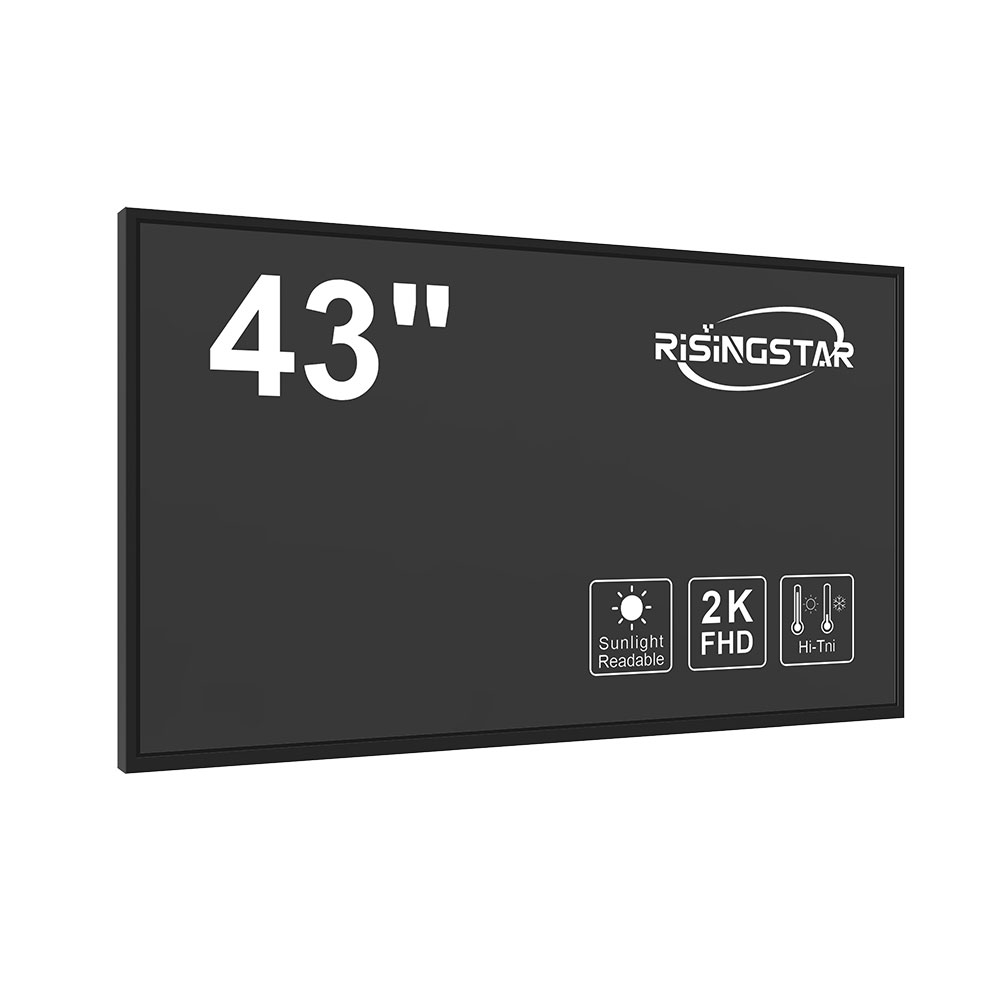- Home
- About Us
- Products
- News
- Video
- Contact
- Send Inquiry
Search
- Home
- About Us
- Products
- News
- Video
- Contact
- Send Inquiry

Outdoor LCD screens have become a cornerstone of modern digital signage, especially in environments where visibility, durability, and reliability are non-negotiable. From bustling city centers to remote industrial sites, these displays are no longer just about showing content—they are engineered to thrive under extreme conditions such as high temperature, humidity, direct sunlight, and mechanical stress.
One of the most significant practical applications is in transportation hubs—airports, train stations, and bus terminals—where real-time flight updates, schedules, and safety announcements must remain legible even under intense solar glare. According to a 2023 report by Grand View Research, over 68% of global airports now deploy outdoor-rated LCDs with brightness levels exceeding 5,000 nits, ensuring readability in direct sunlight. These screens often integrate anti-glare coatings and IPS (In-Plane Switching) panels for wide viewing angles, making them ideal for multi-directional audience engagement.

Another major use case is in retail advertising. Brands like McDonald’s and Starbucks leverage high-brightness outdoor LCDs in drive-thru windows and façade installations. The advantage here isn’t just visual impact—it’s also data-driven. Modern outdoor LCDs support remote content management via cloud platforms, enabling dynamic campaigns tailored to time-of-day, weather, or foot traffic patterns.
Despite their robust design, common problems persist. One frequent issue is thermal management—heat buildup can cause premature failure of internal components. Industry best practices recommend using passive cooling systems with heat sinks and thermally conductive materials, especially for units operating in desert climates above 45°C. Another challenge is moisture ingress; many manufacturers now comply with IP65 or higher ratings per IEC 60529 standards to prevent water damage from rain, snow, or cleaning processes.

The latest trend in outdoor LCD technology involves AI-powered brightness adjustment. Companies like LG and Samsung have introduced adaptive luminance sensors that automatically modulate screen brightness based on ambient light, reducing power consumption by up to 30% while maintaining optimal visibility. This not only extends display lifespan but also supports sustainability goals—a growing priority for public-sector clients.

Additionally, modular LED-LCD hybrid systems are gaining traction in large-format installations, offering both the sharpness of LCD and the flexibility of LED arrays for scalable outdoor branding. These solutions are increasingly used in urban smart city projects, where interactive kiosks and information boards must operate reliably 24/7 in diverse weather conditions.
For professionals selecting outdoor LCDs, it's critical to evaluate certifications such as UL 1993 (for outdoor enclosures), EN 60950 (safety standards), and MIL-STD-810G (military-grade durability). Partnering with experienced integrators ensures proper mounting, ventilation, and long-term performance optimization across all environmental variables.